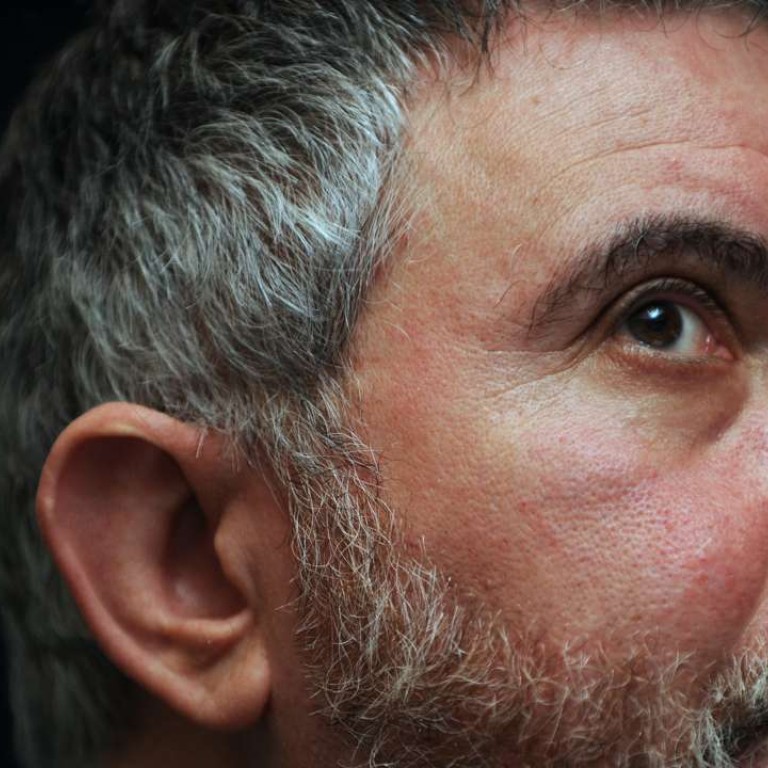
Nobel economist Paul Krugman says zero interest rate environment the ‘new normal’
New York-based economist says US interest rates trapped in conditions similar to the 1930s for the foreseeable future
Nobel Prize-winning economist Paul Krugman downplayed the likelihood of a Federal Reserve interest rate hike in the near term, and even suggested that conditions for ramping up rates to more normal levels may never materialise if inflationary pressures remain subdued.
Krugman said on the sidelines of the OCBC Global Treasury, Economic and Business Forum on Thursday that any policy tightening by the Fed would likely backfire.
“The Fed really, really wants to raise rates. They may do it. The statistics doesn’t look so bad. But if the Fed does raise rates, it’ll be sorry. We’ll just be importing dollar strength,” he said.
Krugman noted that policymakers had few options but to leave rates at or near zero, even if it means depriving them of the ability to respond with monetary actions in future economic fallout scenarios.

That lack of policy manoeuvre room could be dangerous.
“We don’t know how this will end. The last we saw anything like this was in the 1930s and that ended with…World War II,” Krugman said.
He added that the ultra-low yields in US Treasuries were the market’s view as to where rates should go. “People are too used to thinking 3 to 4 per cent interest rates are normal. We are not looking at an overheated inflationary boom, anywhere. There is no sign of one on the horizon. So why do we think that [rate hike] will happen?” he said.
OCBC’s house economist Selena Ling, head of treasury research and strategy said the Fed faced a difficult choice on whether to raise rates.
“Yellen has painted herself into a corner when she said ahead of the vote Brexit would be a risk,” said Ling. “If they don’t hike at least once this year - they’ve basically already revised down their guidance from four hikes to two and now one, there will be no policy normalisation.”
Ling added that abandoning plans for rate hikes this year would be seen as damaging to the Fed’s credibility.
Meanwhile, Krugman said the key point was that monetary policy had entered into a permanently low or near zero environment.
“Rate normalisation will never happened. With zero rates, this is the new normal,” he said. “It does not mean rates will always be zero. They may go up a little bit now and then.”
“International capital flows will end up with future currency movements - strong economies will rise until they are not strong anymore.”
He added that policymakers had limited conventional policy tools to support the economy if needed.
“This is a world that has very little room to manoeuvre,” he said. “Politically if something bad happens, the world is not ready for it.”
The prospect of policy coordination among the G20 member nations was unlikely to be effective in combatting a slowdown, he said.
“The G20 is not very helpful right now,” he said. “We need local, national policies…not global policy coordination.”
On the issue of China’s currency, Krugman said he attached little significance to the IMF’s decision to add the yuan to its basket of reserve currencies later this year.
“I don’t believe the internationalisation of the renminbi is very important. The international roles of currencies is a vastly overrated factor. The pound led the world until the 1960s to 1970s,” he said.
“I’m quite pessimistic about China. Leverages have clearly gone up… It’s set for a recession but there’ll no be implosion on the horizon.”

